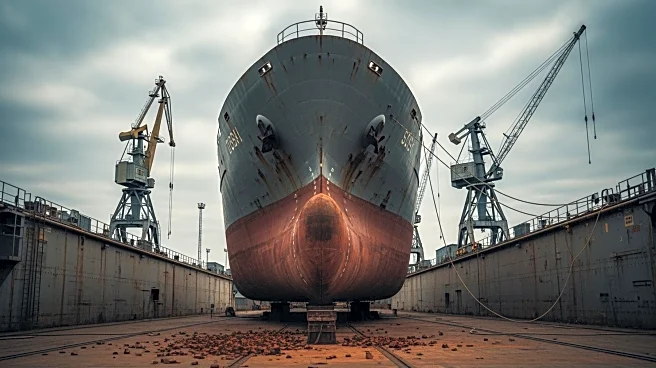What's Happening?
The ship recycling industry is facing challenges due to a significant drop in oil prices and ongoing sanctions. According to cash buyer GMS, oil prices have fallen to USD 57.68 per barrel, marking a 6%
decrease over the last month and a 16% drop compared to the previous year. Additionally, the U.S. and EU are continuing to impose sanctions, particularly targeting Russia, which affects shipping activities. These sanctions include measures that allow navies and coast guards to board vessels suspected of carrying sanctioned cargoes. The tightening of economic activities around Iran has also led to 170 ships being blacklisted globally. These factors have resulted in restricted supply and falling steel plate prices in Bangladesh and Pakistan, while currency devaluations in India have further impacted the industry.
Why It's Important?
The decline in oil prices and the imposition of sanctions have significant implications for the ship recycling industry. Lower oil prices can reduce the profitability of shipping operations, leading to fewer ships being decommissioned and recycled. Sanctions disrupt shipping routes and increase operational costs, affecting the availability of ships for recycling. The economic impact is felt in countries like Bangladesh and Pakistan, where steel plate prices are falling, and in India, where currency devaluations exacerbate the situation. The industry must navigate these challenges while adapting to new regulations and market conditions. The approval of ship-recycling yards under the Hong Kong Convention offers a glimmer of hope for the industry, potentially improving standards and practices.










